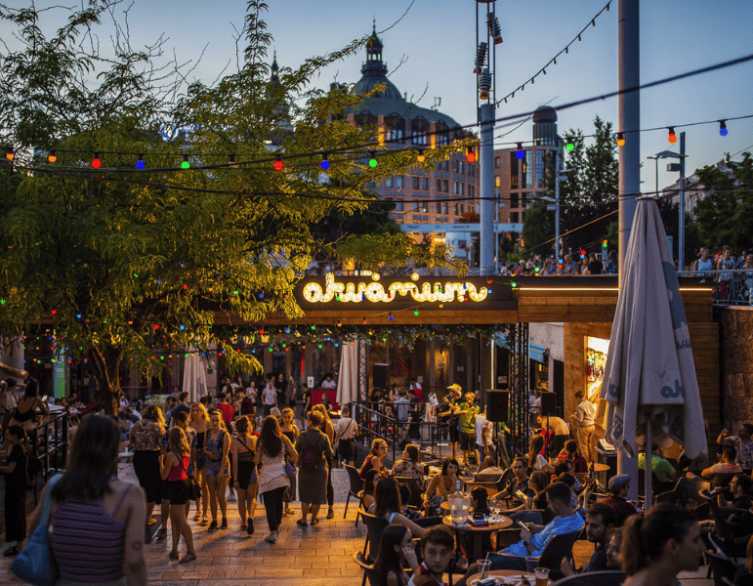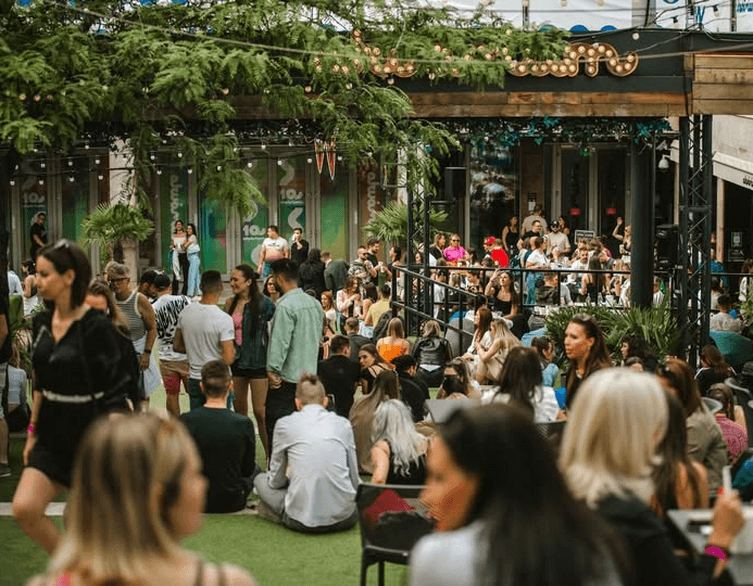Akvárium Klub Faces Uncertain Future: What Visitors Need to Know

Budapest’s iconic Akvárium Klub has suspended all event planning for the first half of 2026, leaving both local music lovers and international visitors wondering about the future of one of the city’s most beloved underground venues. This unexpected development affects the vibrant cultural landscape that makes Budapest such an attractive destination for tourists seeking authentic nightlife experiences.
The Suspension Announcement
The news broke when Telex, a prominent Hungarian news outlet, received information from multiple independent sources suggesting uncertainty surrounding events at the Erzsébet Square venue. When contacted for clarification, Akvárium Klub confirmed these reports, revealing they had no choice but to halt preparations for concerts, conferences, and other events scheduled for early 2026.
The reason behind this dramatic decision stems from communication received from the Hungarian National Asset Management Company (MNV), which owns the property housing the club. According to Akvárium’s management, MNV informed them about planned renovation work that could significantly impact the venue’s operations. However, frustratingly for both the club and its patrons, no additional details about the scope or timeline of these renovations have been provided.
A Decade-Long Partnership in Jeopardy
Since 2014, Akvárium Klub has operated under a rental agreement with MNV, securing the underground space through a 15-year contract with an additional 5-year option. This arrangement has allowed the venue to establish itself as a cornerstone of Budapest’s alternative music scene, hosting everything from intimate indie concerts to large-scale electronic music events.
The club’s location beneath Erzsébet Square, in the heart of Budapest’s city center, has made it uniquely accessible to both locals and tourists exploring the capital. Its underground setting creates an atmosphere that’s simultaneously intimate and electric, offering visitors an authentic taste of Hungarian nightlife culture that differs significantly from typical tourist-oriented venues.
Impact on Budapest’s Cultural Scene
For international visitors, Akvárium Klub has long represented more than just another entertainment venue. It serves as a cultural bridge, showcasing both Hungarian and international artists in an setting that feels genuinely local rather than manufactured for tourism. The potential disruption to this space raises questions about Budapest’s commitment to preserving its grassroots cultural institutions.
The venue has been instrumental in introducing foreign visitors to Hungarian music scenes they might never otherwise encounter. From experimental electronic acts to traditional folk fusion bands, Akvárium has consistently programmed diverse lineups that reflect Budapest’s complex cultural identity. This programming approach has made it a favorite among culturally curious travelers seeking experiences beyond the typical tourist trail.
Best deals of Budapest
What This Means for Visitors
Travelers planning Budapest visits for early 2026 should be aware that one of the city’s most distinctive venues may not be operational during their stay. While this represents a significant loss for the cultural landscape, Budapest’s music scene extends far beyond any single venue.
The uncertainty surrounding Akvárium’s future reflects broader challenges facing independent cultural spaces in rapidly developing urban centers. As Budapest continues attracting international attention and investment, venues like Akvárium often find themselves caught between preservation and progress.
Looking Ahead
The lack of detailed information from MNV makes it impossible to predict whether these renovations represent routine maintenance, major structural improvements, or something more transformative. The vague communication suggests that even the club’s management remains in the dark about their long-term prospects at the current location.
For now, Akvárium continues operating normally through 2025, meaning visitors can still experience this unique venue before any potential changes take effect. However, the suspension of 2026 planning activities indicates that uncertainty extends well beyond the renovation period itself.
This situation highlights the precarious nature of independent cultural venues operating in prime urban real estate. While Budapest has generally been supportive of its alternative culture scene, economic pressures and development interests can quickly shift the landscape for establishments like Akvárium.
Alternative Venues and Experiences
While Akvárium’s potential closure would represent a significant loss, Budapest offers numerous other venues where visitors can experience authentic local music culture. Venues like A38 Ship, Dürer Kert, and various smaller clubs throughout the city continue providing platforms for both emerging and established artists.
The situation at Akvárium serves as a reminder that Budapest’s cultural landscape remains dynamic and sometimes unpredictable. For visitors seeking authentic experiences, this unpredictability is both part of the city’s charm and a source of occasional disappointment when beloved venues face uncertain futures.
As developments unfold regarding the renovation plans and Akvárium’s future, the venue’s story will likely reflect broader trends affecting cultural spaces throughout Budapest and similar cities across Europe. For now, music lovers visiting Budapest should make the most of Akvárium while it remains operational, understanding that they may be witnessing the end of an era at one of the city’s most distinctive cultural institutions.
Related news













